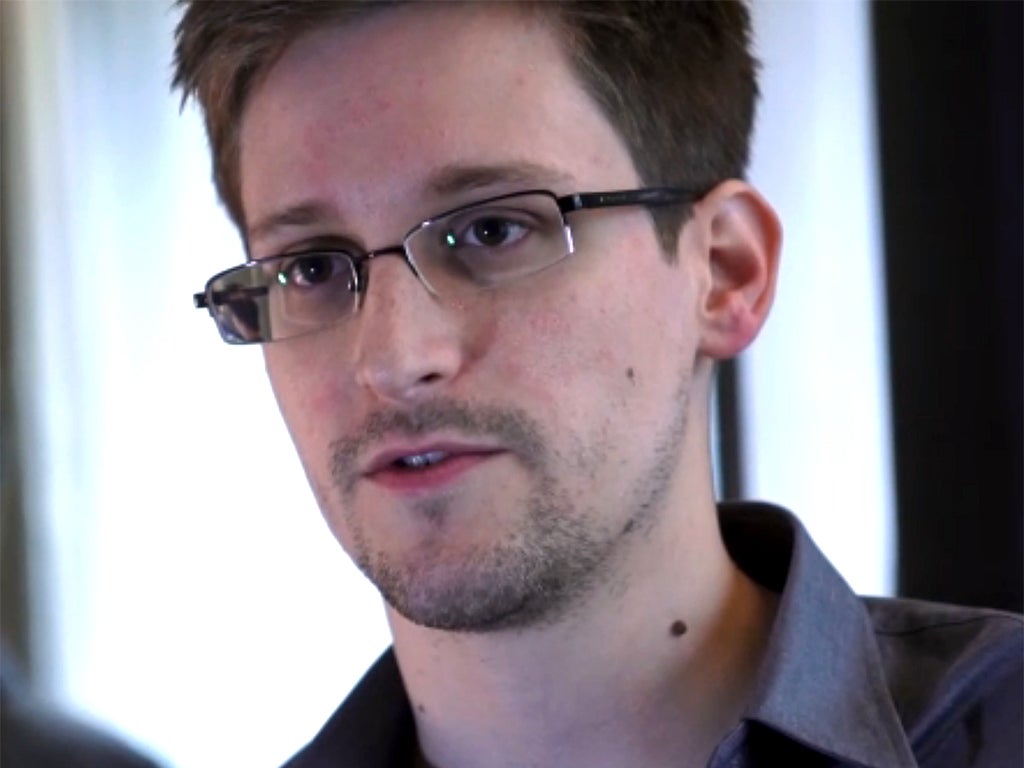MPs question Guardian editor Alan Rusbridger’s patriotism over Edward Snowden leaks

Your support helps us to tell the story
From reproductive rights to climate change to Big Tech, The Independent is on the ground when the story is developing. Whether it's investigating the financials of Elon Musk's pro-Trump PAC or producing our latest documentary, 'The A Word', which shines a light on the American women fighting for reproductive rights, we know how important it is to parse out the facts from the messaging.
At such a critical moment in US history, we need reporters on the ground. Your donation allows us to keep sending journalists to speak to both sides of the story.
The Independent is trusted by Americans across the entire political spectrum. And unlike many other quality news outlets, we choose not to lock Americans out of our reporting and analysis with paywalls. We believe quality journalism should be available to everyone, paid for by those who can afford it.
Your support makes all the difference.In scenes reminiscent of a McCarthyite hearing or an Old Bailey trial, the editor-in-chief of The Guardian, was on Tuesday asked to prove his patriotism and accused of having broken Britain’s terror laws.
Alan Rusbridger found himself the subject of extraordinary questioning during a heated session of the Home Affairs Select Committee as MPs probed the circumstances surrounding the newspaper’s disclosure of secret security files leaked by American whistle-blower Edward Snowden.
In an unusual start to the hearing, Keith Vaz, chair of the committee, demanded to know if Mr Rusbridger loved the United Kingdom.
“You and I were both born outside this country,” the Yemen-born MP told the editor, who was born in Zambia when it was a British colony. “I love this country, do you love this country?”
Having said he was “slightly surprised to be asked the question”, Mr Rusbridger responded: “Yes, we are patriots and one of the things we are patriotic about is the nature of a democracy and the nature of a free press.” He said that the “freedom to write and report” was “one of the things I love about this country”.
The most aggressive of the questioners was Michael Ellis, the Conservative MP for Northampton, who went for the editor with all the gravitas of a prosecuting counsel, accusing Mr Rusbridger of being a criminal.
“Mr Rusbridger, you authorised files stolen by Snowden which contained the names of intelligence staff to be communicated elsewhere, didn’t you, yes or no?” he demanded. “”Do you accept from me that that is an offence, a criminal offence under section 58A of the Terrorism Act 2000?”
Adopting a grave tone, Mr Ellis, a qualified barrister, went on to accuse the editor of outing as homosexual members of GCHQ, Britain’s secret listening service. “Do you accept that information contained personal information that could lead to the identity even the sexual orientation of persons working in GCHQ?”
Mr Rusbridger replied: “You have completely lost me Mr Ellis. There are gay members of GCHQ?”
“They shouldn’t have to be outed in your newspaper,” said Mr Ellis.
The editor observed that the paper’s report that GCHQ had its own gay “Pride” staff group was merely repeating information that existed on the website of gay campaigning group Stonewall. During his evidence, Mr Rusbridger repeatedly stressed that the paper had never identified any member of the British security services in its reports based on the leaked material.
Mr Ellis persisted, arguing that the Guardian’s handling of Snowden’s 58,000 files had also compromised GCHQ members who had gone on staff trips to Disneyland in Paris. “Your evidence has lost me,” Mr Rusbridger replied.

The editor was accused of having broken the law, compromising the identities of intelligence staff, by transferring unredacted files overseas. He told MPs that the paper had drawn on only 26 of the Snowden files, which he said had all been destroyed under the watch of two GCHQ officials in a formal ceremony using “Black & Deckers”.
The editor told MPs that the only leak of information had been the original one from the National Security Agency and he called for greater debate on oversight of the security services in the UK. He argued that the Snowden material had been leaked to four countries. “The thought that this material wouldn’t have been published is ridiculous,” he told the committee. “Shooting the messenger is the oldest diversionary tactic in the book.”
Asked if The Guardian was under investigation by the police over its handling of the leaked files, Mr Rusbridger told MPs: “I don’t know.”
Mr Vaz revealed that the head of the security service MI5, Andrew Parker, who has criticised The Guardian for handing a “gift” to terrorists, is to be called to address the committee in open session.
Subscribe to Independent Premium to bookmark this article
Want to bookmark your favourite articles and stories to read or reference later? Start your Independent Premium subscription today.